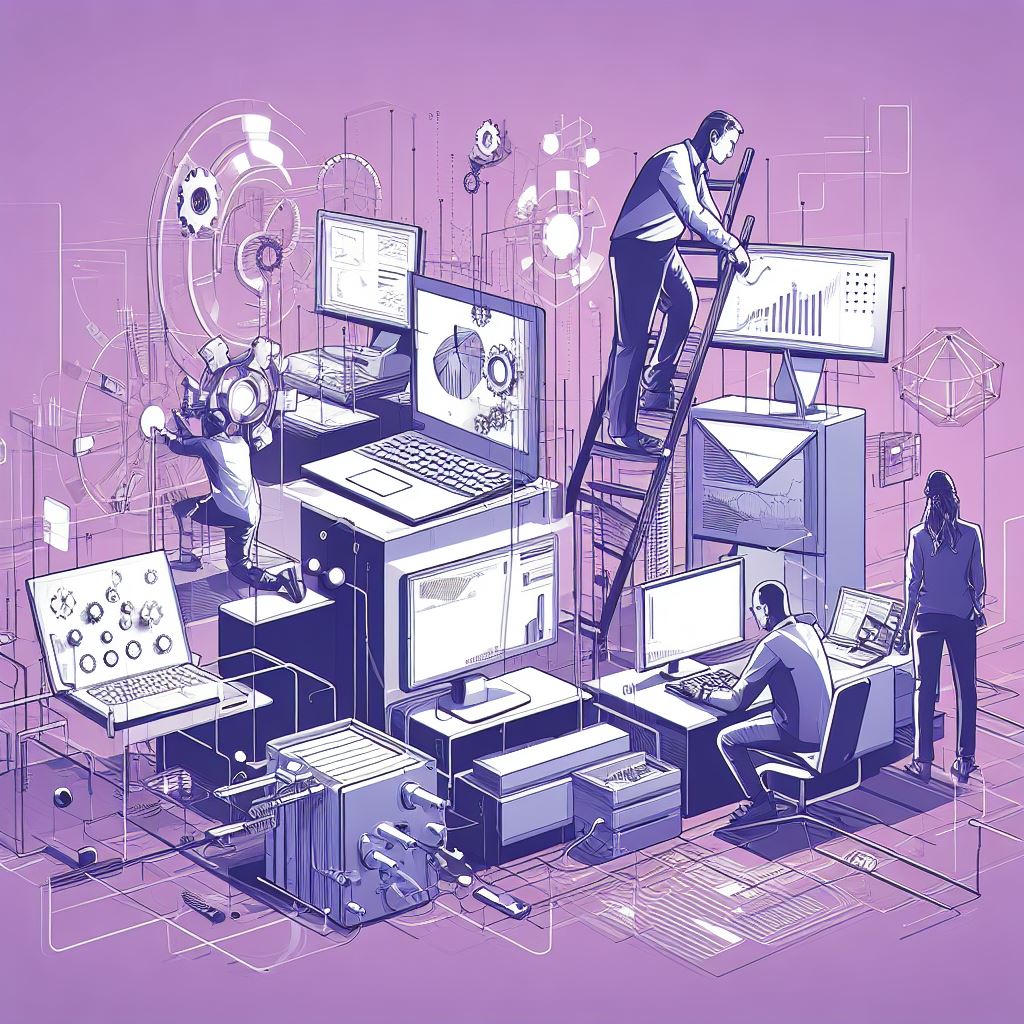Employee Engagement Strategies in the Age of Artificial Intelligence
In today’s rapidly evolving corporate world, employee engagement is crucial for success and longevity. Interestingly, Artificial Intelligence (AI) has emerged as a game-changer in this realm. This blog post explores how AI is revolutionizing employee engagement, making workplaces more dynamic and responsive.
Employee Engagement: The AI Revolution
AI is transforming employee engagement by providing personalized experiences and insights. From AI-driven analytics to chatbots for instant communication, these technological advancements are shaping a new landscape in employee engagement. They bring a level of efficiency and personalization previously unattainable, making employees feel more valued and understood.
AI-Driven Analytics Boosting Employee Engagement
One of AI’s key contributions to employee engagement is through data analytics. AI algorithms can analyze vast amounts of data on employee behavior and feedback. This analysis leads to actionable insights on how to improve engagement strategies, tailor communication, and enhance the overall employee experience.
Enhancing Employee Engagement with AI Chatbots
AI chatbots are revolutionizing the way employees interact within an organization. These chatbots provide instant responses to employee queries, reducing response time and increasing satisfaction. They offer a level of interaction that’s both engaging and efficient, leading to higher levels of employee engagement.

Personalization: AI’s Role in Employee Engagement
AI technologies enable a level of personalization that significantly impacts employee engagement. From personalized learning and development programs to customized feedback, AI helps in catering to the unique needs and preferences of each employee, making them feel valued and part of the organization.
Predictive Analytics for Proactive Engagement
AI’s predictive analytics play a crucial role in proactive employee engagement. By predicting potential disengagement or dissatisfaction, AI enables organizations to take preemptive measures. This foresight helps in maintaining high levels of engagement and addressing issues before they escalate.
Research by MHR Analytics, released in June 2019, reveals that while just 11% of employers currently employ sophisticated methods, half of them believe that predictive analytics could be instrumental in assessing employee feelings and enhancing engagement.
Employee Engagement and AI in Performance Management
Performance management is another area where AI significantly contributes to employee engagement. AI tools can provide ongoing, real-time feedback, helping employees understand their performance and areas for improvement continuously. This immediate feedback mechanism keeps employees aligned and engaged with their work and goals.
AI and Engagement in Remote Work
In the era of remote work, AI is a vital tool in maintaining and enhancing employee engagement. AI-powered tools can help in monitoring engagement levels, facilitating communication, and ensuring that remote employees feel connected and part of the team.
The Ethical Consideration in AI and Employee Engagement
While AI offers numerous benefits in enhancing employee engagement, it’s crucial to approach its use ethically. Transparency about how AI is used and ensuring it complements human interaction, rather than replacing it, is key to maintaining trust and integrity in the workplace.
Conclusion: Embracing AI for Future Engagement
AI is not just a technological trend; it’s a strategic tool reshaping the landscape of employee engagement. Its ability to analyze, predict, and personalize makes it indispensable in the modern workplace. As we move forward, the integration of AI in employee engagement strategies will continue to play a pivotal role in creating more responsive, efficient, and satisfying work environments.
To explore this topic further and understand its intersection with environmental responsibility, be sure to check out our blog on “Employee Engagement in the Age of Environmental Responsibility.”









